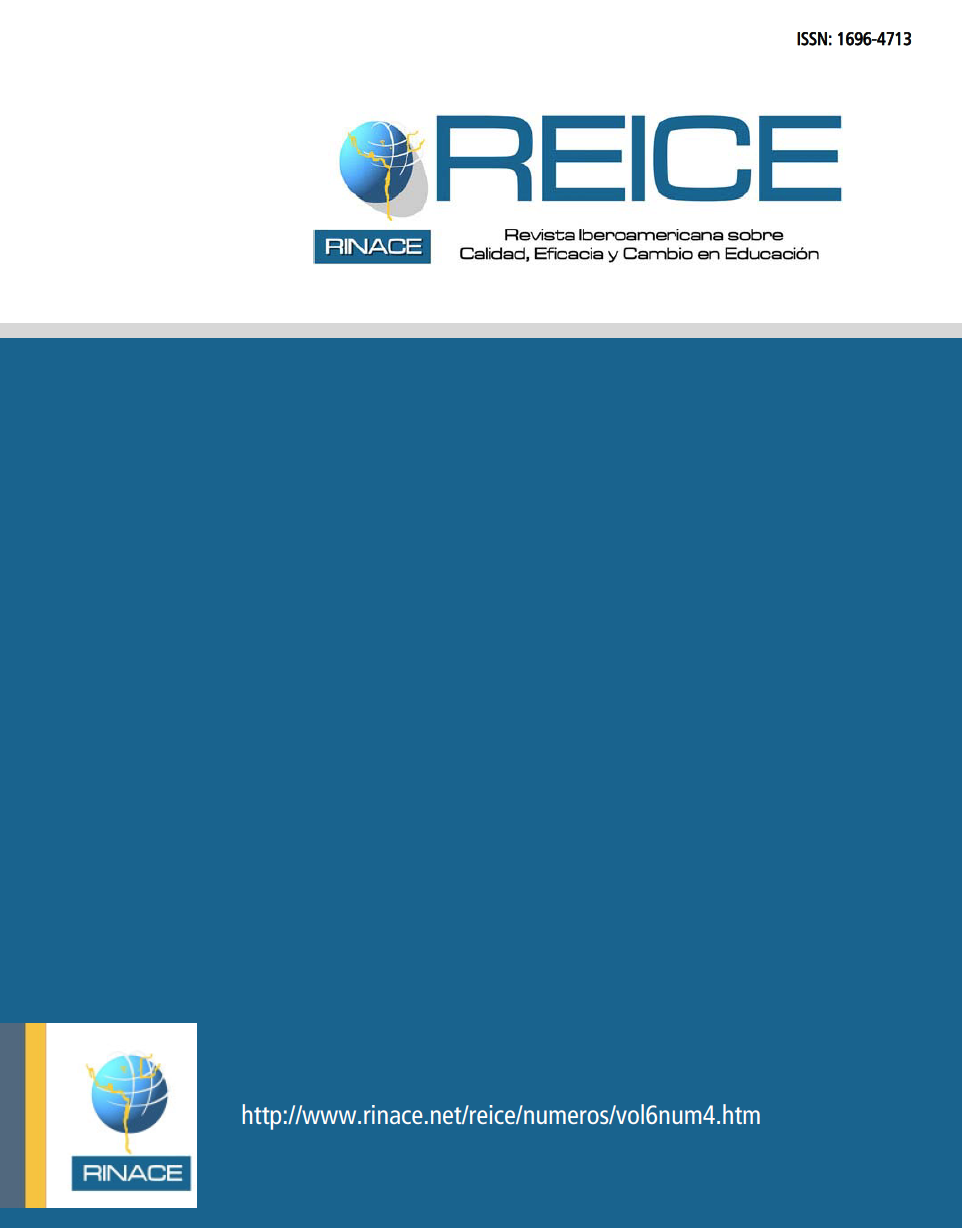Intermediate Levels in the Chilean School System: Limits and Possibilities for Equality
Keywords:
Educational equality, School management, decentralization, Educational qualityCopyright (c) 2018 REICE. Iberoamerican Journal on Quality Effectiveness and Educational Change

This work is licensed under a Creative Commons Attribution-NonCommercial-NoDerivatives 4.0 International License.
Abstract
This article describes and analyses he finds made by the authors, during the course of the investigation made as part as the regional study “The role of intermediate government levels in schools: how they work towards equality”.
This Study was coordinated by San Andrés University in Argentina; and financed by the Ford Foundation during 2005 and 2006. This Study intended to further the understanding of the conduction of Chile’s public education coming from its educational system intermediate levels, specially looking at the possibilities, limits and effects in equality. From these viewpoint, the analysis was focused on the decision making organisms at an intermediate levels (municipalities and provinces), as well as the form, dynamics, mechanisms and conditions through which said decisions are enforced in the education field. It describes and analyses the decision making processes (rules of the game) implied in the roles and functions of the authorities, referred to the administrative, financial and educational aspects of the educational service. This helps identifying who makes said decisions, how and about what they are made; so that the effect and reach caused by their implementation (effects in the equality measurements in the establishments under their responsibility) can be dimensioned. Clear indications of the intermediate levels relevance during the implementation of actions designed to improve the quality and equality of education were found. Important limitations were also found during the generations of resources and necessary conditions designed to advance decentralization and in pro of educational equality.
